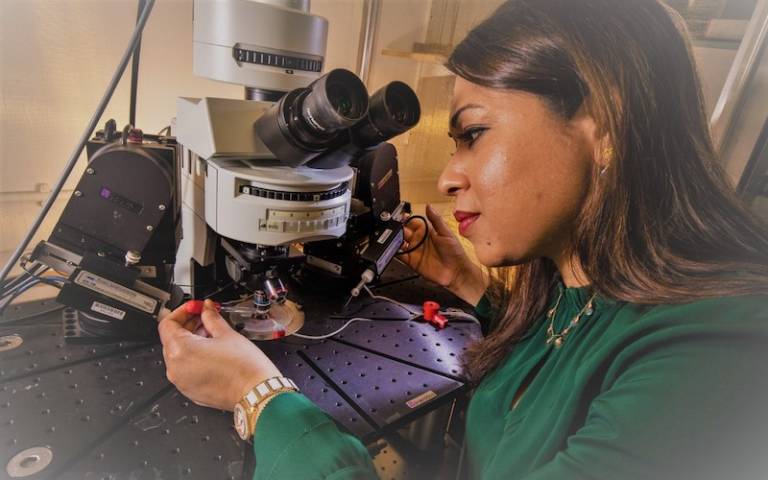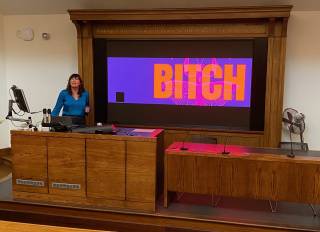Associate Professor Afia B. Ali shares her experience of working on equality and diversity at UCL over the last decade – and says she thinks it’s everyone’s responsibility.

“I first got involved in equality, diversity and inclusion (EDI) work about 10 years ago, when I obtained some funding from UCL Widening Participation to promote science education to underrepresented groups related to different postcode areas in London.
I was an early career researcher then, and it was something I enjoyed hugely, going out into primary and secondary schools promoting pharmacy as a career to kids who’d never considered it before.
We invited groups of secondary school students to spend half a day with us and organised tasters and talks with some of our scientists – and then summer schools to take that a step further. After three years, we began seeing an increase in intake from those different socio-economic backgrounds. So that was really my first experience of EDI and the impact fairly simple activities can have on improving diversity.
Since then, as Chair of the UCL School of Pharmacy’s Committee, I have led some changes to our MPharm curriculum, to ensure we are thinking about inclusion and diversity in the way our teaching is designed and delivered.
All of our trainee pharmacists now have the chance to engage with patients and carers from diverse groups, so they can develop empathy in working with people from different backgrounds. We also challenge bias whenever we see it, for example the fact that our text books refer to the ideal blood pressure as being 120/80. Some of our students were worried that theirs didn’t fit neatly into those parameters, and that prompted a discussion about how that figure historically has been based on a fit, 6 foot tall, white rugby-playing male. Even on that small level, we need to be making sure that people don’t feel ‘outside of’ what they think is the societal norm.
Most recently, I was appointed BAME Awarding Gap Lead for Life Sciences, an area I feel especially strongly about. I have a mixed Bangladeshi/Pakistani background, and identify as a British Muslim Asian female, mother of three. So I understand the struggles and needs of students from different backgrounds.
I’m also a UCL alumnae and proud to be part of an organisation that’s consistently ranked in the top 10 universities globally. But I believe that our leadership should be more reflective of the student body. More than 50% of our students at UCL are from a Black, Asian or ethnic minority background, but we’re a long way from that in terms of staff diversity, particularly at the higher levels. We’re looking at that now and seeing how we can improve it.
Then there’s the BAME awarding gap* – a national issue – which stood at around 6% in 2018 in UCL Life Sciences (*the difference in ‘top degrees’ – a 1st or a 2:1 classification – awarded to different groups of students). 6% is a lot better than the national gap of 15%, and the Office of the Provost has pledged to reduce it to 0%. So we’re delving into the factors that could be feeding into it. As well as staff diversity, we’re looking at issues such as diversity and representation in the curriculum, implicit/unconscious bias, institutional racism, and discrimination and microaggressions from staff and students. More recently, as an external examiner, I influenced a change in another London university’s Faculty of Medicine to address the awarding gap with anonymisation of summative and formative assessments. So that could be another route for us to consider.
When it comes to EDI, the challenge is to engage people from all backgrounds because EDI is everybody’s responsibility. It’s a tough question for many people, I have no doubt about that. Speaking openly about EDI matters can make them feel uncomfortable. But it’s important we have these uncomfortable conversations in a professional and respectable manner if we are to make a change.
For my part, I try to overcome that uncomfortableness by collaborating as much as I can with a diverse range of staff and students, because collaborative minds are engaged minds. And the more people we get involved in tackling inequality, the better we will do.”
Links
BAME Awarding Gap project
UCL’s Race Equality Charter Steering Group
 Close
Close


